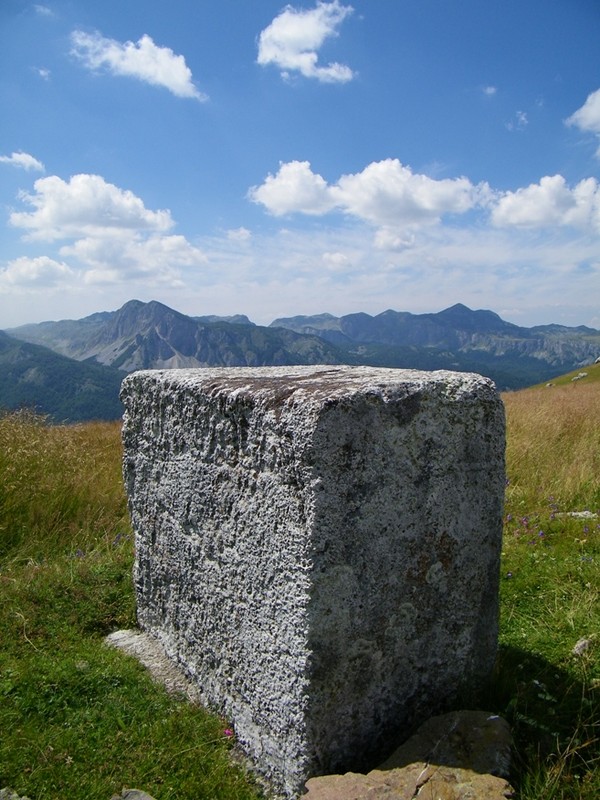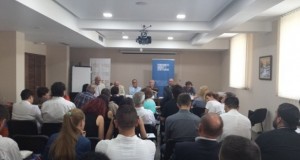
22.09.2015.
Those who fail to learn from the past are doomed to repeat it
conference, dealing with the past, RECOMRegional Conference “Critical Culture of Remembrance – Between Memory, Denial and Oblivion”
A culture of remembrance entails a process which nurtures a sense of the other – in order to recognize their evil, but also to build empathy for them. But there is a different kind of truth being taught in our schools, and so our children are being raised to take part in future conflicts or, at the very least, in a spirit of ethnic division. “We suffer from a distinct historical lobotomy”, declared Sarajevo film director Dino Mustafić at a conference – “A Critical Culture of Remembrance – between memory, denial and oblivion” – , hosted in Banja Luka on September 17th by Friedrich-Ebert-Stiftung B&H and the Center for Democracy and Transitional Justice. This was around the time of the much anticipated (and failed) debate in the RS Parliament on the resolution condemning the crime in Srebrenica.
“How is it possible that, 20 years after the war, we are still unable to agree on recording the names of the missing, and on finding all those killed?” asked Mustafić, and calling for the establishment of a regional commission to establish the facts about war crimes and other gross human rights violations perpetrated in the former Yugoslavia (RECOM). It is precisely the establishment of facts and the recording of the names of all the victims that are needed to prevent any further political manipulation of the effects of the wars which followed the breakup of the former Yugoslavia.
The conference, aimed at finding the answer to How do we relate to the past?, saw numerous representatives of the academic community, artists, writers, journalists, diplomats and political analysts taking part. All of them emphasized the importance of addressing matter of the culture of remembrance in the region. To use the words of psychologist Žarko Korać from Belgrade, there always needs to be someone to raise the issue of how to correct collective memories and remind the nation of the evils perpetrated in its name. Korać also criticized the social intellectual elites, describing them as “corruptible” and “utterly worthless”, and as “having shamed themselves terribly”.
“This is the story of social Alzheimer’s, the story about the self-serving concept of the past from which we cherry-pick only what we like. Every day we witness this post-Yugoslav competition in self-victimization, which looks like a vying for position before the next conflict”, said Professor Žarko Puhovski from Zagreb, adding that those who fail to learn from the past are doomed to repeat it.
Having studied commemorative cultures for years, psychologist Srđan Puhalo also called for the establishment of RECOM, because “we need to leave our children with accurate information about all the victims of the wars of the ‘nineties.”
“And that’s why RECOM is a good thing: we don’t need interpretations, we need information. But, the media continues silently to overlook all the manipulation and lies”, added Puhalo.
Historian and former B&H ambassador Slobodan Šoja assessed that there was “a coalition of bad politicians and poor scientists at work in B&H”, and that the past was being spoken of with just one aim in mind – to lay the blame on someone else. Also criticized was the education system, with respect to which Dijana Antunović-Lazić of the European Vukovar House spoke about the problems plaguing the education of the younger generations.
“We have schools for children with classes in Croatian, and then we have classes in Serbian which teach the Cyrillic alphabet. They have been using the same building entrance since kindergarten, but now, some take the left hallway, while others turn to the right. Some go to the playground, while the rest go somewhere else. It is like an invisible barrier between the children”, said Dijana Antunović-Lazić.
Those taking part in the conference also addressed the Resolution condemning the crime in Srebrenica and the various declarations acknowledging the 1915-1917 Armenian genocide, as well as those condemning the crimes perpetrated within the NDH against ethnics Serbs, which had caused great political turmoil in the RS Parliament, but never actually got to be debated, and were eventually taken off the parliamentary agenda. The shared assessment was that no significant harm had been done by having these declarations and resolutions taken off the agenda without any debate, as their purpose had been to function as a political instrument, rather than as an opportunity to pay respects to the victims.
The transformation of such declarations and resolutions into their direct opposites was also pointed out by Professor Mladen Mirosavljević from Banja Luka: „Such documents stand no chance of ever coming to life and becoming a part of the culture of remembrance, as the interest groups within the current political establishment see them exclusively as a means of self-promotion.”
Professor Mile Lasić from Mostar was of the same opinion, adding that such initiatives also guided politics outside of B&H. He clarified that resolutions addressing individual crimes and perpetrators in no way contribute to the creation of a culture of remembrance, and expressed his belief that all of the crimes perpetrated in the 20th century ought to be listed and studied in the course of a regular education.
All of the participants agreed that declarations in general should demonstrate an honest intention to assume responsibility for the crimes, express remorse and pay respects to the victims, as this would imply that a culture of remembrance had finally taken root in the region.
(Prepared by Jelena Grujic Zindovic, based on reports by Autonomija, ATV i Byka)















